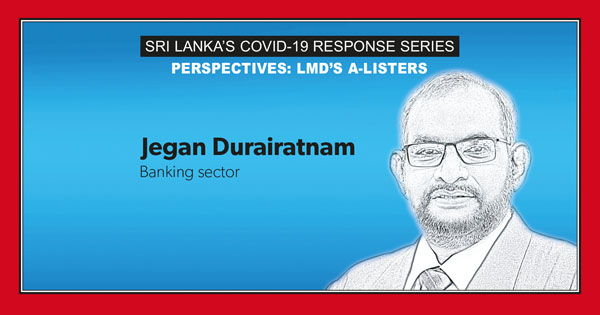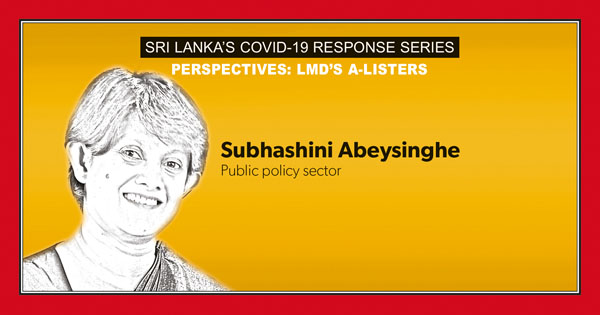TOUGH DECISIONS ON EMPLOYMENT
Q: What is the outlook for jobs and employment in the medium term? And how should the authorities address the prospect of rising unemployment?
A: The COVID-19 coronavirus pandemic has affected Sri Lankan businesses across all sectors except perhaps agriculture, which has faced a minimal impact. Export oriented industries (many of which survive on revenue earned from the USA and Europe), tourism, apparel and labourers who rely on remittances from abroad are suddenly faced with grim prospects, in terms of expenditure, profitability and ultimately employee retention.
Without a consistent flow of revenue, several businesses will be compelled to make tough decisions and it is likely that our unemployment rate of 4.5% will increase in the short term.
COVID-19 has demonstrated that companies can operate on a lean workforce with many employees working from home. Others like drivers and support staff have unfortunately become inconsequential to continuing business operations. It has become apparent to many that office spaces are redundant and meetings via Zoom calls are more effective than those that have needed physical spaces.
As corporate leaders gradually realise that a leaner staff cadre does not affect productivity, it is possible this too will exacerbate unemployment.
As such, the government must undertake two separate missions: firstly, it must look to maintain the current level of employment through competent legal and policy frameworks; and secondly, it has to encourage enterprises to generate new opportunities for employment.
Q: What lessons have we – the business community – learnt from this crisis?
A: Firstly, COVID-19 has shattered the myth of economies being resilient and solid enough to endure any hardship. Giants like the US and Europe are still reeling from the pandemic and the very fundamentals of economics have been challenged.
We have learned painfully that global economies haven’t maintained the right priorities. Several global powerhouses like China, the US and the EU have been so focussed on expanding their economic clout that they’ve neglected social, environmental and cultural wellbeing. FTAs and schemes like the One Belt One Road Initiative saw massive economic expansion but not one of them could build the necessary infrastructures to weather COVID-19.
Unsustainable practices have dominated the globe and now businesses across the world do not know how to continue with an interrupted supply chain. In Sri Lanka in particular, we have learned that making all exports and industries reliant on only a few markets is a bad idea.
The business community will have to shift to non-conventional local manufacturing and help steer the economy away from an import reliant economy. I say non-conventional as we need to rely less on foreign labour remittances, rubber and tea, and diversify. COVID-19 has given us both a wake-up call and an opportunity to realign the national economy, and chart a new course.
Q: How do you see the ‘new normal’ for business panning out?
A: Was there ever a ‘normal’ before COVID-19? The past century has seen several unsustainable and condemnable actions in the name of ‘the economy.’ There are four pillars we should build on – namely the economic, social, environmental and cultural pillars. We’ve prioritised the economy for so long that we neglected the other three whereas all are equally important.
Social pillars (which encompass health and housing) and environmental pillars (they preserve and sustain our natural resources) have been ignored in the name of economic expansion. Even last year’s Easter Sunday attacks can be attributed to having neglected the cultural pillar, which allowed extremism. Therefore, was there ever a ‘normal’?
The new normal should champion these four fronts. In a strange way, this virus has compelled us to value the other pillars; families have been under lockdown, we have reviewed our social and cultural values, our economies are now learning the need for sustainability, and politicians are realising the importance of public health and poverty eradication.
[wprpw_display_layout id=2]





